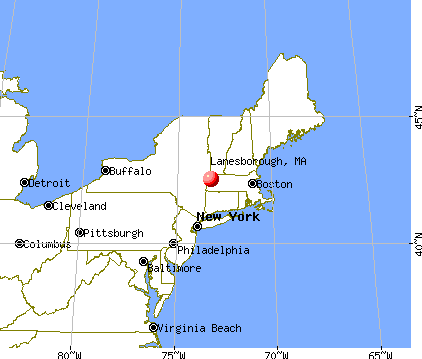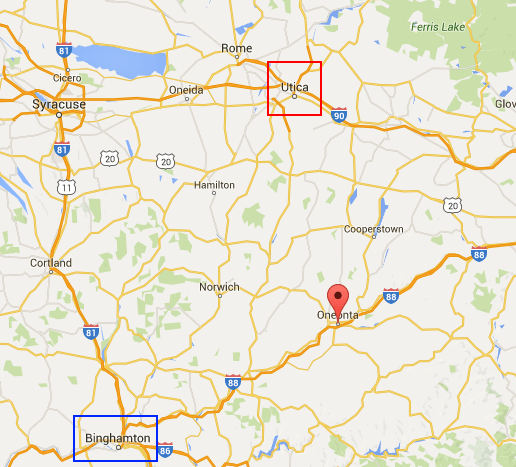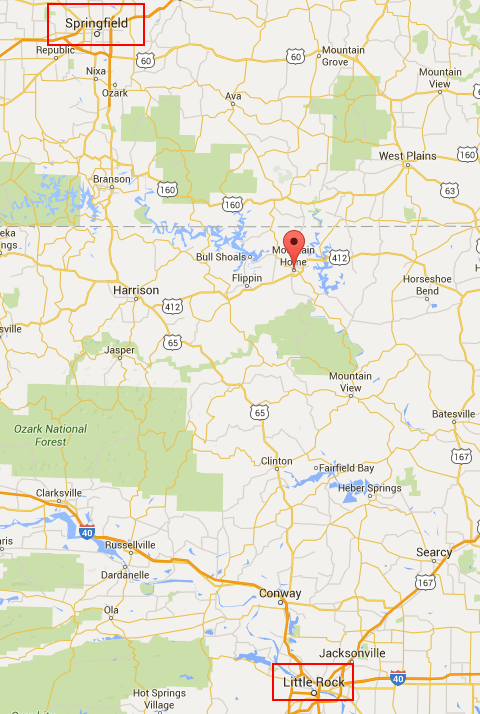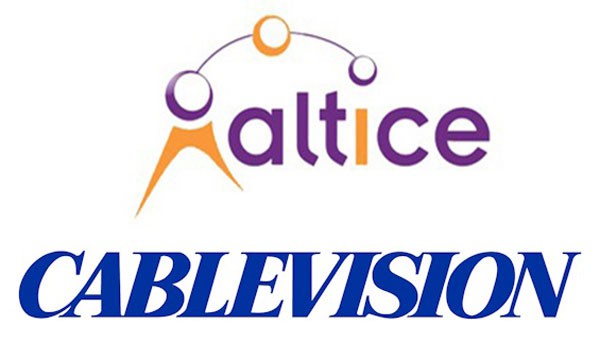 Stall, stall, stall. While Charter Communications and AT&T are working towards improving their broadband service offerings for Kentucky’s largest city, both companies are doing everything possible to slow down the arrival of their nemesis: Google Fiber, which is preparing to wire Louisville for gigabit fiber to the home service.
Stall, stall, stall. While Charter Communications and AT&T are working towards improving their broadband service offerings for Kentucky’s largest city, both companies are doing everything possible to slow down the arrival of their nemesis: Google Fiber, which is preparing to wire Louisville for gigabit fiber to the home service.
This past February, Louisville Metro Council unanimously passed a new ordinance called “One Touch Make Ready,” designed to streamline telecom provider access to utility poles, which are getting crowded with at least three telecom companies vying for consumers’ business. The ordinance was passed with the support of Google, which seeks a minimum of red tape from local permit and zoning bureaucracies and its competitors while network engineers begin installing fiber optics across the city. Installing Google Fiber on utility poles may involve moving other providers’ wiring to make room for Google, which in some cases could mean 4-5 different utility companies having to visit each pole to move their wiring. In the past, Google asked the pole owner for access, which has not always been forthcoming on a timely basis. The new ordinance requires the pole owner to respond to access requests within 30 days. If no response is forthcoming, Google can approach the city for a permit to hire a contractor to do all the relocation work on their behalf.
“Such policies reduce cost, disruption, and delay, by allowing the work needed to prepare a utility pole for new fiber to be attached in as little as a single visit—which means more safety for drivers and the neighborhood,” Google wrote on its blog. “This work would be done by a team of contractors the pole owner itself has approved, instead of having multiple crews from multiple companies working on the same pole over weeks or months. One Touch Make Ready facilitates new network deployment by anyone—and that’s why groups representing communities and fiber builders support it, too.”

Louisville, Ky. (Image: Chris Watson)
About two weeks after the ordinance passed, AT&T made it clear they did not support it and took the city to court, claiming it had no right to regulate its utility poles.
“Louisville Metro Council’s recently passed ‘One Touch Make Ready’ Ordinance is invalid, as the city has no jurisdiction under federal or state law to regulate pole attachments,” said AT&T spokesman Joe Burgan. “We have filed an action to challenge the ordinance as unlawful. Google can attach to AT&T’s poles once it enters into AT&T’s standard Commercial Licensing Agreement, as it has in other cities. This lawsuit is not about Google. It’s about the Louisville Metro Council exceeding its authority.”
Time Warner Cable (now Charter Communications) joined AT&T, adding the city is violating the cable company’s corporate constitutional rights by effectively seizing their property (cable lines) and granting a right for third parties to manipulate, move, or manage those lines without Time Warner Cable’s permission.
“The ordinance is simply unworkable,” said Time Warner Cable’s attorney Gardner Gillespie, a partner in the D.C. law firm Sheppard-Mullin. “It does not provide any meaningful way for Time Warner Cable to know what changes have been made to its existing facilities or to assure any damage is promptly cured.”
 Gillespie also claimed customers could endure poorer service and outages as a result of unauthorized contractors relocating Time Warner Cable’s equipment, often without the cable company’s knowledge.
Gillespie also claimed customers could endure poorer service and outages as a result of unauthorized contractors relocating Time Warner Cable’s equipment, often without the cable company’s knowledge.
City officials dismissed the concerns, but failed to get either lawsuit dismissed.
Charter executives have also opened a new opposition front against Google Fiber’s presence in the city, accusing city officials of unfairly favoring the search engine giant while continuing to burden Charter with a franchise agreement that requires the cable company to provide free cable in city buildings and offer channel space and studio facilities for the city’s Public, Educational, and Government Access channels.
At present, Google is not obligated to provide any of those services and has also won a unique regional franchise that covers the city of Louisville and nearby suburbs in a single agreement. The Metro Council has also granted Google its own public right-of-way access for installing various communications infrastructure. Both AT&T and Charter claim they are only getting involved because they believe they should be given equal treatment. Critics contend they are attempting to slow down Google Fiber, which could begin offering service by fall of 2017.
Time Warner Cable began offering Maxx-upgraded service in March 2016, offering residents up to 300Mbps. AT&T is gradually expanding its U-verse with GigaPower gigabit broadband service in locations around Louisville.


 Subscribe
Subscribe It is hard to imagine there are still cable systems serving customers with nothing more than a slim lineup of standard definition cable television channels in 2016, but not if you live in three Berkshire towns over the New York-Massachusetts border where Charter Communications will finally introduce HD television and internet service starting next week.
It is hard to imagine there are still cable systems serving customers with nothing more than a slim lineup of standard definition cable television channels in 2016, but not if you live in three Berkshire towns over the New York-Massachusetts border where Charter Communications will finally introduce HD television and internet service starting next week. Charter Communications is promising its Southern California customers it won’t bungle the transition from Time Warner Cable to Charter Communications like Frontier Communications
Charter Communications is promising its Southern California customers it won’t bungle the transition from Time Warner Cable to Charter Communications like Frontier Communications  But not all customers are happy about Charter’s slow transition plans. Customers waiting for Time Warner Cable Maxx upgrades, some already in progress, may be out of luck. Charter’s new management team put an indefinite hold on Time Warner’s more aggressive upgrade plans in favor of Charter’s much more modest commitment to offer customers two broadband speed tiers – 60 and 100Mbps over the next 18 months. Customers in the northeast and midwest have been told there are no longer any definitive dates for the introduction of Maxx, which offers free speed upgrades up to 300Mbps.
But not all customers are happy about Charter’s slow transition plans. Customers waiting for Time Warner Cable Maxx upgrades, some already in progress, may be out of luck. Charter’s new management team put an indefinite hold on Time Warner’s more aggressive upgrade plans in favor of Charter’s much more modest commitment to offer customers two broadband speed tiers – 60 and 100Mbps over the next 18 months. Customers in the northeast and midwest have been told there are no longer any definitive dates for the introduction of Maxx, which offers free speed upgrades up to 300Mbps. Time Warner Cable subscribers in Otsego County, N.Y. have been able to watch WBNG-TV, the CBS affiliate in Binghamton, since there has been a cable company called Time Warner Cable. But as of yesterday, that is no longer the case. In Baxter County, Ark., Suddenlink customers suddenly lost KARK (NBC) and KTHV (CBS), two stations from Little Rock, after the cable company decided it would henceforth only carry KYTV (NBC) and KOLR (CBS) instead. Part of the problem for subscribers is those two stations are located in Springfield, Missouri, a different state.
Time Warner Cable subscribers in Otsego County, N.Y. have been able to watch WBNG-TV, the CBS affiliate in Binghamton, since there has been a cable company called Time Warner Cable. But as of yesterday, that is no longer the case. In Baxter County, Ark., Suddenlink customers suddenly lost KARK (NBC) and KTHV (CBS), two stations from Little Rock, after the cable company decided it would henceforth only carry KYTV (NBC) and KOLR (CBS) instead. Part of the problem for subscribers is those two stations are located in Springfield, Missouri, a different state.
 Another cable company with cost-cutting fever is Altice-owned Suddenlink, which stopped carrying the two Little Rock-based broadcast stations in northern Arkansas on June 7, leaving KATV (ABC) as the only central Arkansas-based news outlet on the cable provider’s Mountain Home-area system.
Another cable company with cost-cutting fever is Altice-owned Suddenlink, which stopped carrying the two Little Rock-based broadcast stations in northern Arkansas on June 7, leaving KATV (ABC) as the only central Arkansas-based news outlet on the cable provider’s Mountain Home-area system. Suddenlink has standing orders from Altice to look for savings wherever possible, but none of those savings are returned to subscribers. The loss of the stations has not reduced anyone’s cable bill and Suddenlink recently moved TBS and INSP — a Christian cable network — to a more costly Expanded Basic tier. In place of the two networks dropped from the Basic package are home shopping networks that actually make Suddenlink money – Evine Live and Jewelry TV.
Suddenlink has standing orders from Altice to look for savings wherever possible, but none of those savings are returned to subscribers. The loss of the stations has not reduced anyone’s cable bill and Suddenlink recently moved TBS and INSP — a Christian cable network — to a more costly Expanded Basic tier. In place of the two networks dropped from the Basic package are home shopping networks that actually make Suddenlink money – Evine Live and Jewelry TV. Despite vociferous denials to New York regulators that Altice’s unique way of cost-cutting expenses in Europe would mean the same in the United States, a Suddenlink employee in the Appalachians found herself visiting a nearby Kroger supermarket recently to pick up some “forever” postage stamps after the office’s postage meter machine stopped working.
Despite vociferous denials to New York regulators that Altice’s unique way of cost-cutting expenses in Europe would mean the same in the United States, a Suddenlink employee in the Appalachians found herself visiting a nearby Kroger supermarket recently to pick up some “forever” postage stamps after the office’s postage meter machine stopped working. When Altice took over Cablevision, employees were stunned when top executives dined in the staff canteen on their first day after the deal closed. That was never the style of former CEO James Dolan and other executives who avoided hobnobbing with anyone too far from the executive suites. Dolan himself often used a helicopter to travel back and forth from the office, occasionally with bodyguards.
When Altice took over Cablevision, employees were stunned when top executives dined in the staff canteen on their first day after the deal closed. That was never the style of former CEO James Dolan and other executives who avoided hobnobbing with anyone too far from the executive suites. Dolan himself often used a helicopter to travel back and forth from the office, occasionally with bodyguards. With a commitment to slash $900 million in expenses out of Cablevision alone during 2016, that’s a lot of discipline. Employees are echoing their French counterparts at Altice’s SFR-Numericable when they call life at Suddenlink and Cablevision “a culture of fear,” watching workers exiting each week without being replaced. Much the same happened in Europe, despite commitments not to engage in job-cutting. In both cases, Altice claims the slow but steady trickle of employee departures are “normal churn,” not layoffs.
With a commitment to slash $900 million in expenses out of Cablevision alone during 2016, that’s a lot of discipline. Employees are echoing their French counterparts at Altice’s SFR-Numericable when they call life at Suddenlink and Cablevision “a culture of fear,” watching workers exiting each week without being replaced. Much the same happened in Europe, despite commitments not to engage in job-cutting. In both cases, Altice claims the slow but steady trickle of employee departures are “normal churn,” not layoffs.